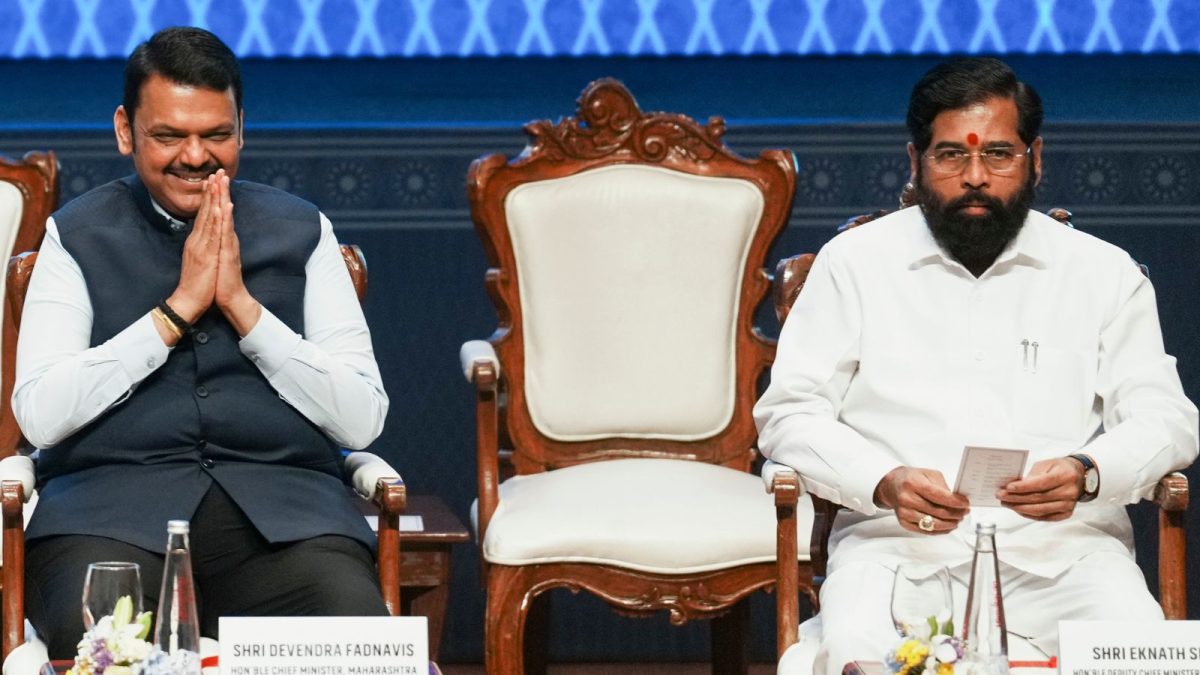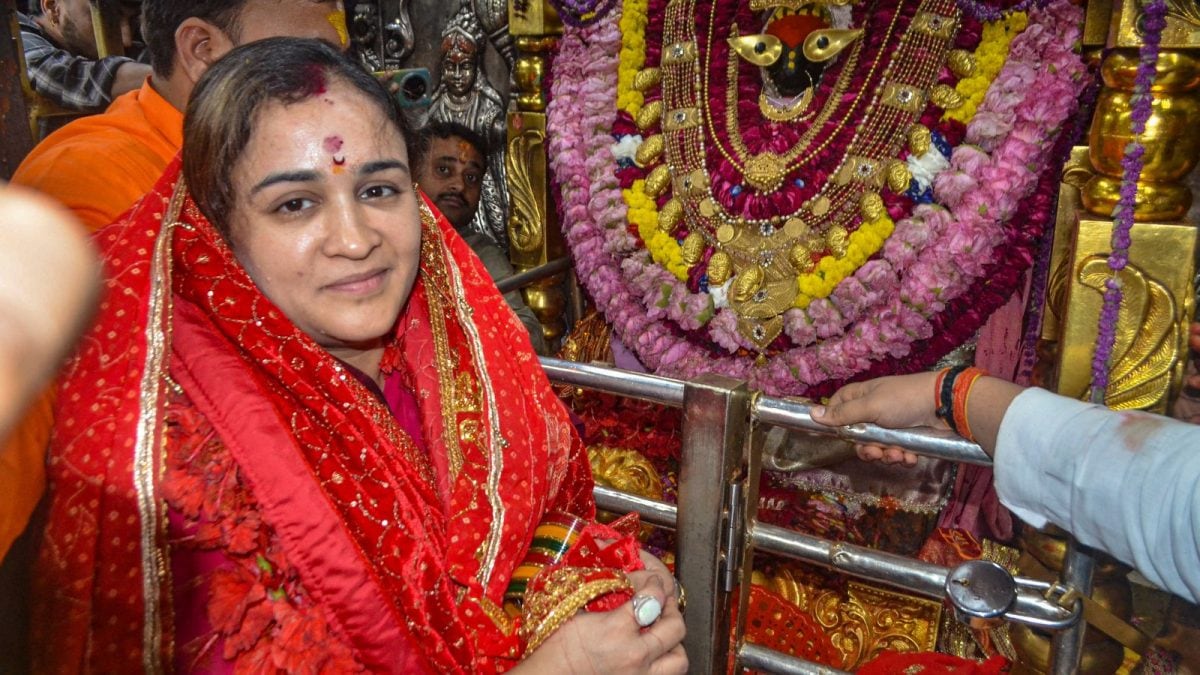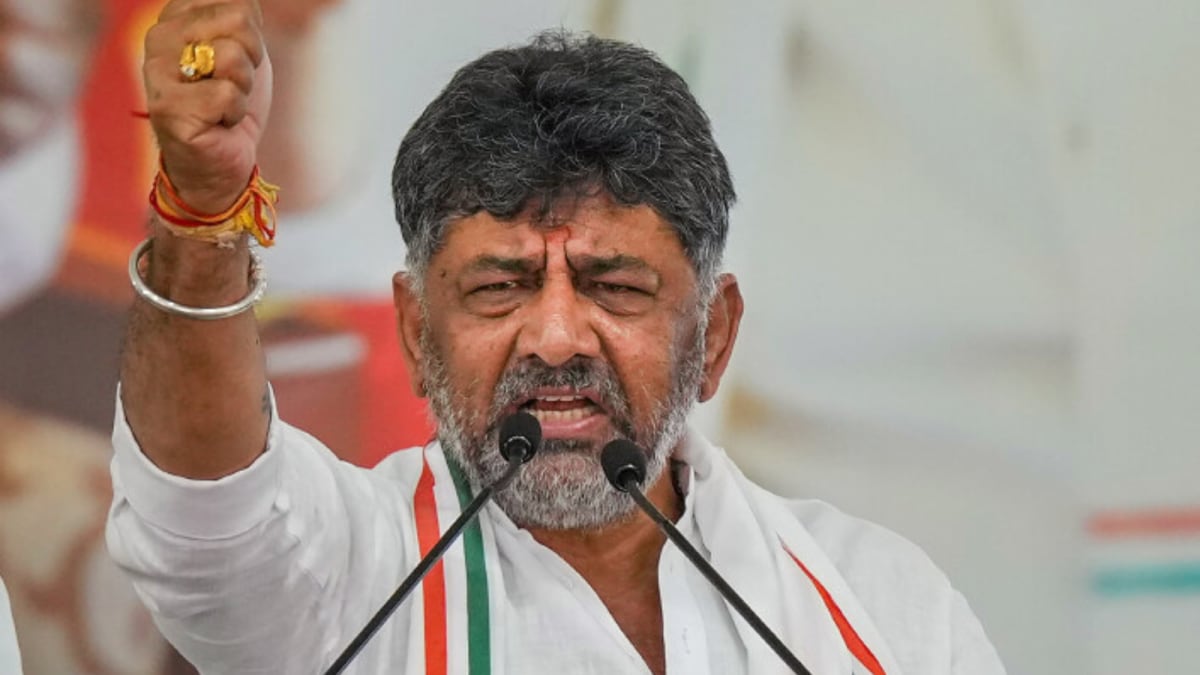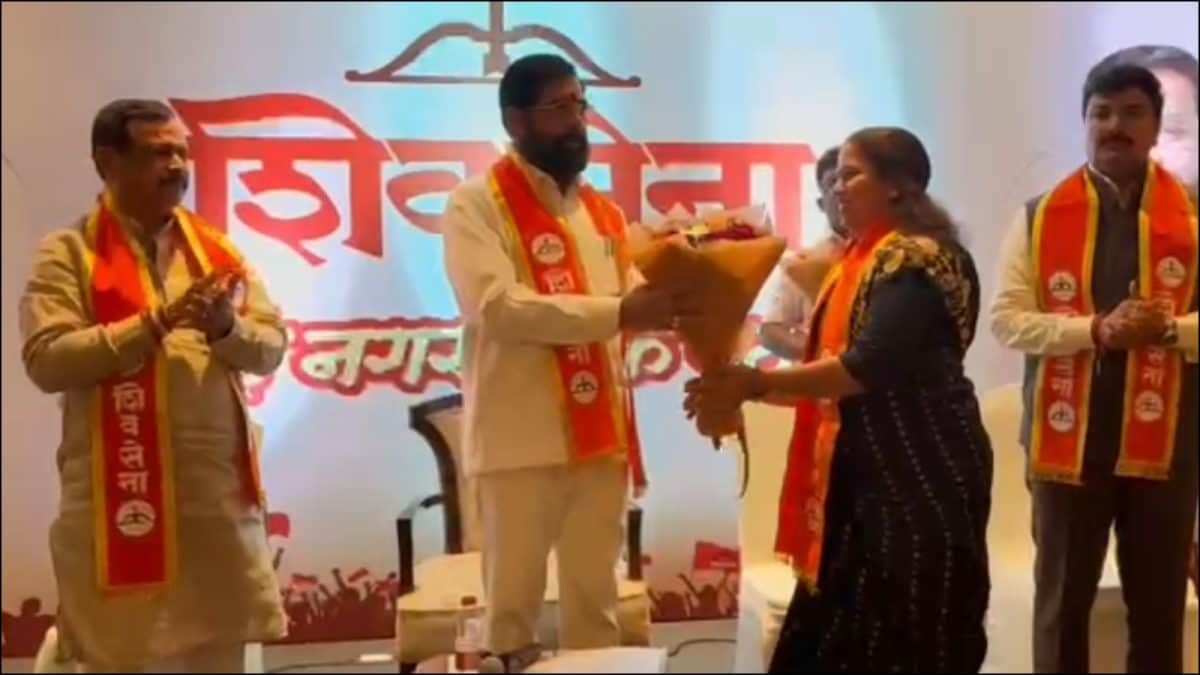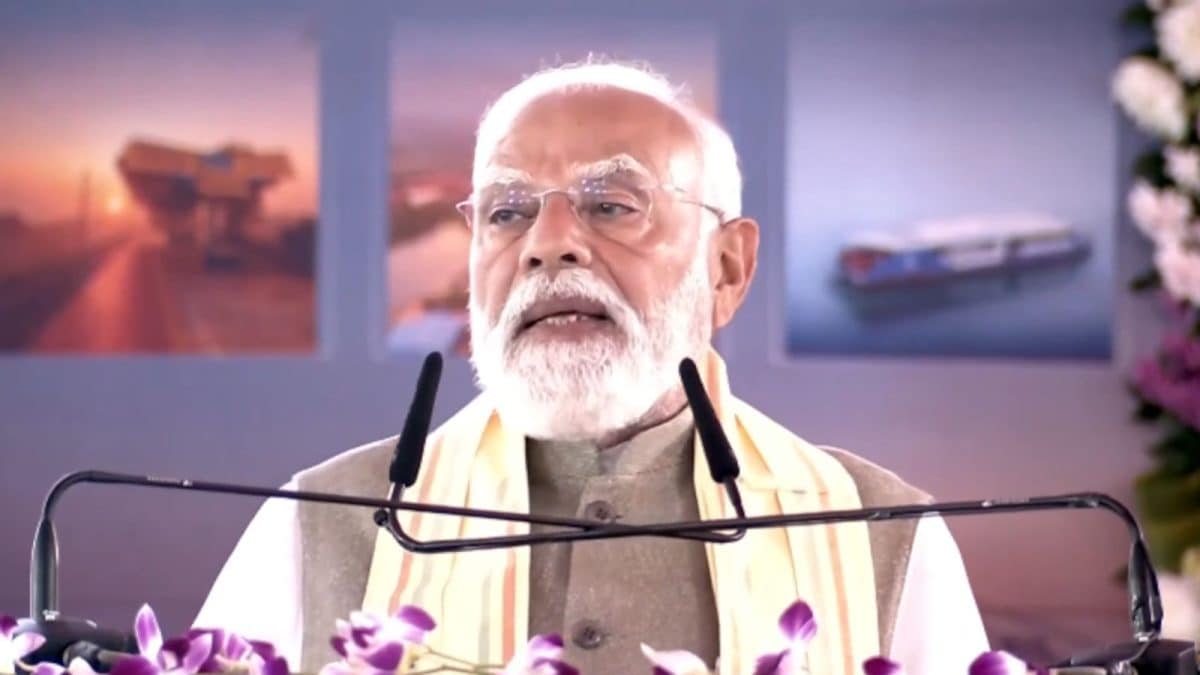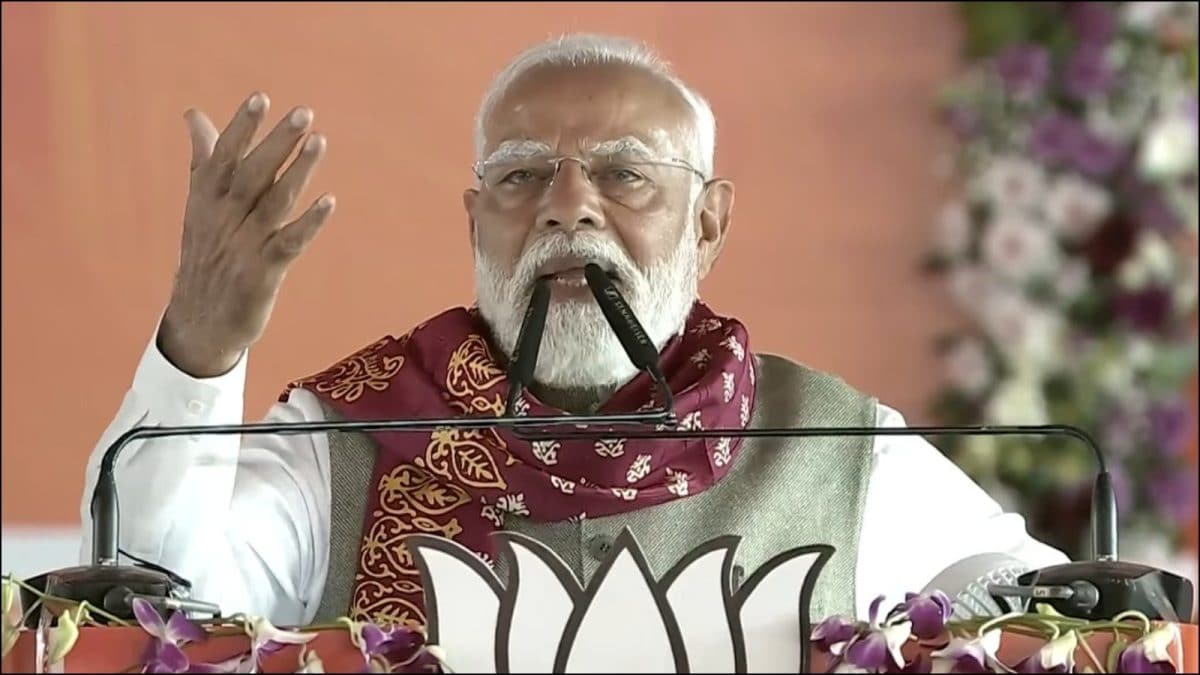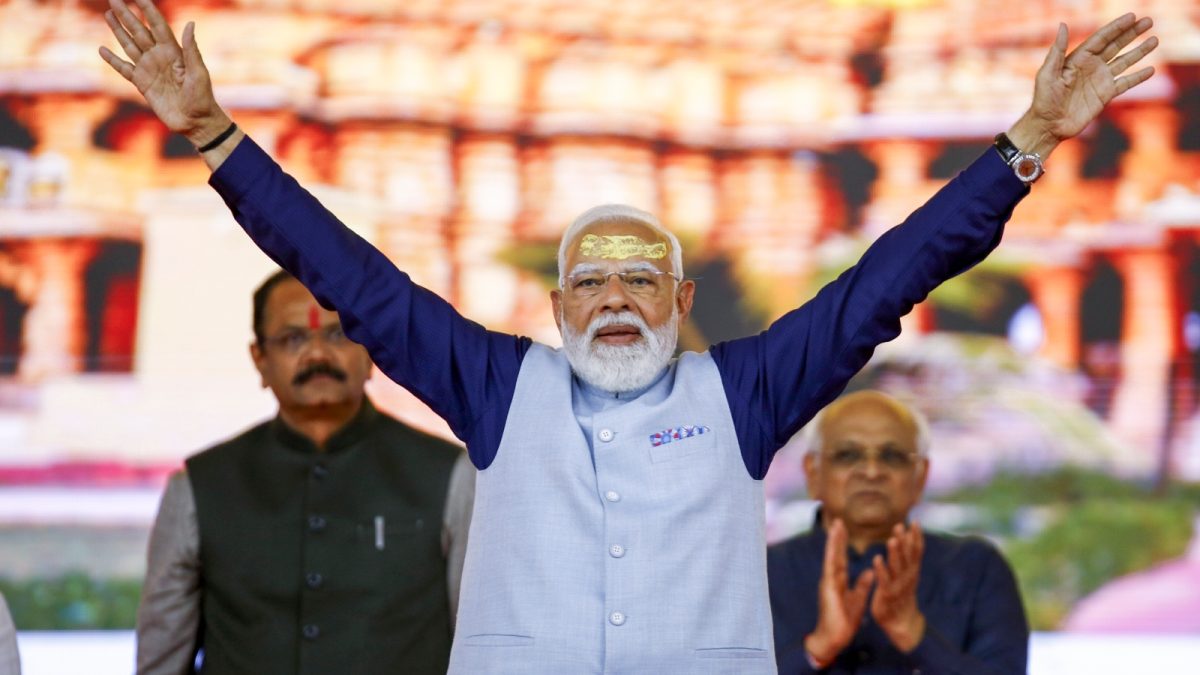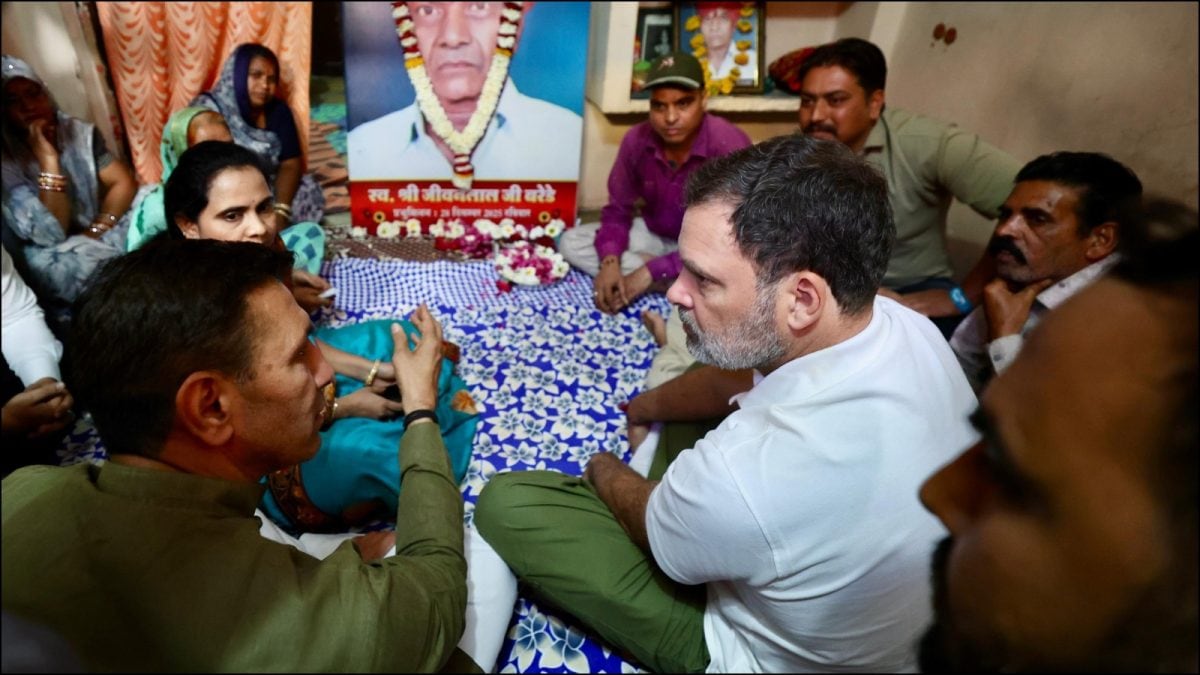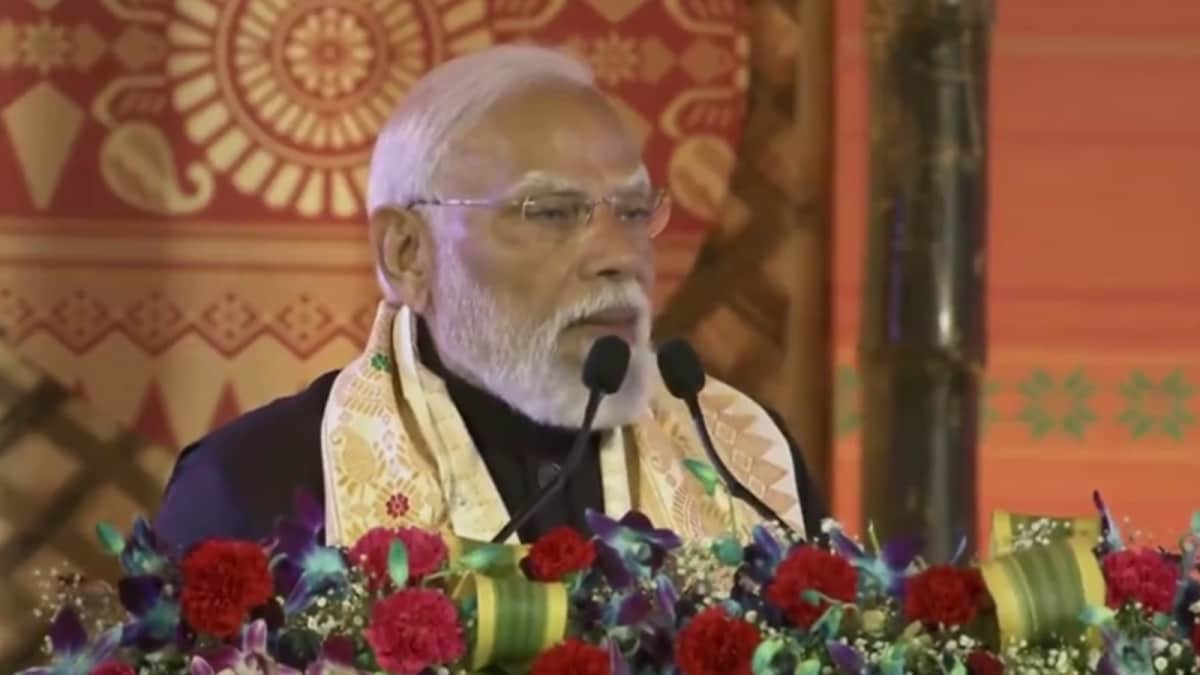Last Updated:November 20, 2025, 14:36 IST
The BJP alleged that having tasted political rout in India, the Congress seems to have “found ideological companions abroad”

Congress leader Sonia Gandhi presents the Indira Gandhi Prize for Peace, Disarmament and Development for 2024 to former Chilean president Michelle Bachelet (center)> (PTI)
In a packed hall in mid-November Delhi, Congress Parliamentary Party (CPP) chairperson Sonia Gandhi presented the Indira Gandhi Prize for Peace, Disarmament and Development for 2024 to former President of Chile and former chief of UN Human Rights, Michelle Bachelet.
While handing the prize to her, Sonia Gandhi drew a parallel between her and India’s former prime minister Indira Gandhi: “Bachelet has seen, first-hand, loss, oppression, torture and exile in her early years. It is a remarkable coincidence how both these women were born and raised in times of strife. Their country, their people, their family and they themselves were victims of subjugation."
But is it so?
KASHMIR FIXATION
One month after India abrogated Article 370 and Article 35A, unifying Jammu and Kashmir in a landmark legislation on August 5, 2019, Bachelet openly criticised it. On September 9, 2019, on the 42nd session of the Human Rights Council, she remarked: “I am deeply concerned about the impact of recent actions by the government of India on the human rights of Kashmiris, including restrictions on internet communications and peaceful assembly, and the detention of local political leaders and activists." Then-Pakistan prime minister Imran Khan welcomed Bachelet’s comments in a series of tweets and called on the UNHCR to form an independent commission to “investigate" human rights violations on this side of the LoC.
Bachelet has consistently raised the Kashmir issue ever since. Two years later, after the pandemic, on September 13, 2021, during the 48th session of the Human Rights Council, the Indira Gandhi Prize Awardee again resurrected Kashmir. “Indian authorities’ restrictions on public assembly, and frequent temporary communication blackouts continue in Jammu and Kashmir, while hundreds of people remain in detention for exercising their right to the freedom of expression, and journalists face ever-growing pressure," she said. In the same speech, she raised questions about rising UAPA cases across India. In 2021, in a report, her organisation expressed “concern" about internet shutdowns and how it affects livelihoods.
USING CAA IN INDIA
But Bachelet and her organisation sought to play an active role when the contentious Citizenship Amendment Act was brought in—a move she refrained from during Article 370 or Article 35A. In early March 2020, the UN Human Rights Office (under Bachelet) filed an application seeking third-party status in a Supreme Court petition challenging the CAA, saying the law raised human-rights concerns. This move drew sharp responses from the Indian government.
In a strong retort, then MEA spokesman Raveesh Kumar hit back, saying: “The CAA is an internal matter of India and concerns the sovereign right of the Indian Parliament to make laws. We strongly believe that no foreign party has any locus standi [rights] on issues pertaining to India’s sovereignty."
Even as late as 2024, the OHCHR reiterated concerns that the CAA’s religion-based criteria risk breaching international obligations. The CAA makes it easier for religious minorities from three neighbouring Muslim-majority countries who came to India before 2015 to get Indian citizenship—but not if they are Muslim. The government’s argument was that Muslims in three Muslim-dominated country are not at risk and the legislation was meant for religious minorities.
AMPLIFYING CIVIL SOCIETY, NGO’S VOICE
The former Chilean President’s UN office publicly urged India to review what it called the misuse of laws like FCRA/UAPA after raids and actions against civil-society groups, saying such measures can deter or punish NGOs and human-rights reporting.
In October 2020, the then UN High Commissioner for Human Rights (UNHCHR) Bachelet and now Indira Gandhi Prize for Peace, Disarmament and Development for 2024 awardee appealed to the government of India to review the FCRA and its compliance with international human rights norms, and regretted that it was being “used to deter or punish NGOs for human rights reporting".
No wonder, the BJP hit out at the Congress for its choice of the awardee, calling it “predictable". BJP’s Amit Malviya alleges that having tasted political rout in India, the Grand Old Party seems to have “found ideological companions abroad". But political barbs aside, it was not great politics either for the Congress in a country where Kashmir remains an emotive issue.

Anindya Banerjee, Associate Editor brings over fifteen years of journalistic courage to the forefront. With a keen focus on politics and policy, Anindya has garnered a wealth of experience, with deep throat in ...Read More
Anindya Banerjee, Associate Editor brings over fifteen years of journalistic courage to the forefront. With a keen focus on politics and policy, Anindya has garnered a wealth of experience, with deep throat in ...
Read More
First Published:
November 20, 2025, 14:36 IST
News politics She Hit Out At Article 370, Challenged CAA: Why Sonia Sees An 'Indira Echo' In Michelle Bachelet
Disclaimer: Comments reflect users’ views, not News18’s. Please keep discussions respectful and constructive. Abusive, defamatory, or illegal comments will be removed. News18 may disable any comment at its discretion. By posting, you agree to our Terms of Use and Privacy Policy.
Read More

 1 month ago
1 month ago
